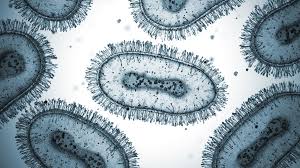
WHO Investigates Mysterious Disease Outbreak in DR Congo’s Kwango Province
The World Health Organization (WHO) is mobilizing a team of experts to assist the Democratic Republic of the Congo (DRC) in investigating an undiagnosed disease outbreak in Panzi, a locality in the southwestern Kwango province.
The disease has claimed 30 lives and resulted in 394 reported cases, with symptoms including headache, cough, fever, breathing difficulties, and anemia.
Swift Action Amid Uncertainty
WHO experts, in collaboration with the National Rapid Response Team, are en route to Panzi to support local health authorities. The team includes epidemiologists, clinicians, laboratory technicians, and infection control specialists.
Since late November, an initial local WHO team has been working with health authorities to bolster disease surveillance and case identification.
“Our priority is to provide effective support to the affected families and communities. All efforts are underway to identify the cause of the illness, understand its modes of transmission, and ensure an appropriate response as swiftly as possible,” said Dr. Matshidiso Moeti, WHO Regional Director for Africa.
The team will deliver essential medicines and diagnostic kits, conduct epidemiological investigations, and enhance treatment and public awareness efforts. Community leaders are also being engaged to promote disease prevention and ensure timely case reporting.
Challenges in Rural Regions
Panzi, located more than 700 kilometers from Kinshasa, faces logistical hurdles due to poor road access and limited communication networks. Despite these challenges, the disease surveillance network has identified cases in seven of Kwango’s 30 health zones, with most concentrated in three zones.
Potential causes under investigation include respiratory pathogens such as influenza or COVID-19, as well as other diseases like malaria and measles. Laboratory tests are ongoing to pinpoint the origin of the outbreak.
Collaborative Efforts for Containment
The WHO deployment aims to strengthen response measures, including sample collection, case finding, and public health communication. Community involvement is key, with efforts focused on educating residents about preventive measures and identifying new cases swiftly.
WHO has pledged to provide updates as investigations progress, emphasizing the importance of swift action to contain the outbreak and safeguard the region's health security.
This effort underscores the critical need for international cooperation and robust healthcare infrastructure to address emerging health threats in remote areas.